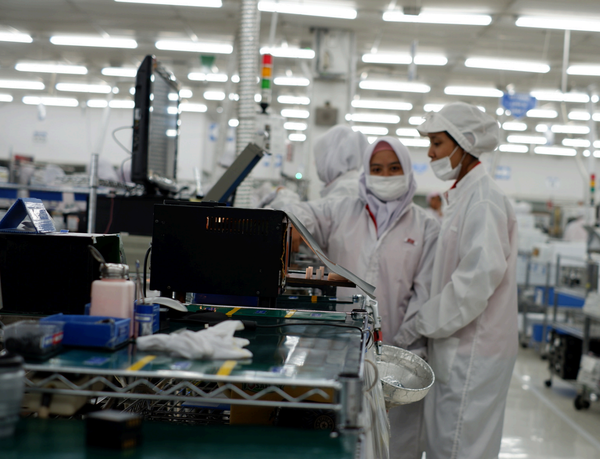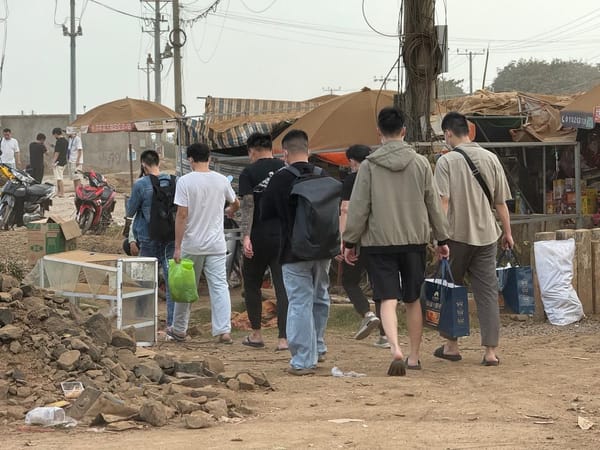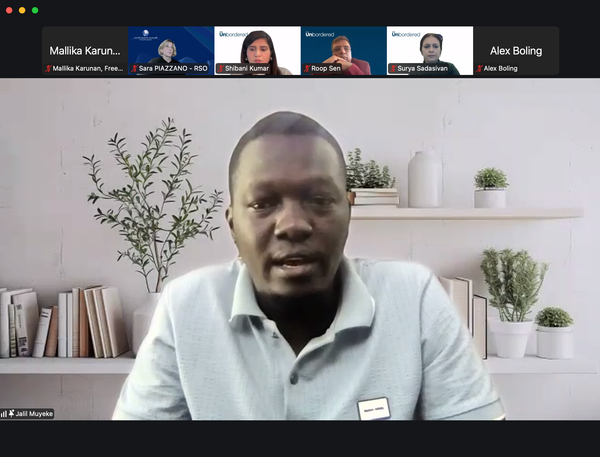Beyond Trafficking and Slavery calls on the sector to take a unified approach
The Beyond Trafficking and Slavery project examines its critiques of the anti-trafficking establishment, a new publication offers guidance on implementing the non-punishment principle, and NGOs call for humanitarian assistance in Yemen.

OpenDemocracy’s Beyond Trafficking and Slavery (BTS) project has launched a new feature series examining the current state of the anti-trafficking sector and evaluating its own original goals, asking why so little progress has been made in tackling the root causes of human trafficking. As part of this review process, the project’s authors identify their past missteps and advocate for a more unified, collaborative and constructive approach to anti-trafficking work.
When BTS was founded in 2014, its core mission was to amplify the voices of activists and researchers who were trying to chart a course away from criminal justice responses, its authors say. Many of its contributors criticized the anti-trafficking mainstream as superficial and self-serving, warning that sensationalist campaigns were sidelining broader struggles for migrant and labour rights. Even as the sector began shifting from the “NGO raid and rescue” model towards addressing labour exploitation, the dominant response focused on minimizing business risk through minor reforms, rather than tackling systemic abuse.
Critics of that response asserted that exploitation is not incidental but embedded in systems of deregulation, outsourcing and subcontracting – structures that keep workers vulnerable and disempowered. The anti-trafficking movement, it argued, should therefore target these root causes rather than treating abuse as a series of isolated incidents or criminal acts.
In a recent contribution to the new series, Marika McAdam, an independent legal consultant on human trafficking, addressed this foundational critique. She noted that, while a focus on labour rights and structural issues is important, criminal justice solutions are crucial for cases in which the activity is and should remain illegal, such as trafficking by cyber-scamming crime groups. She also warned that dismissing criminal justice as a response risks overlooking the ways in which criminal legislation has strengthened the sector as a whole, pointing to the international consensus that emerged during the drafting of the UN Trafficking in Persons Protocol:
“Most countries have enacted trafficking-specific laws that broadly align with the international definition. This harmonized understanding has meant that what was unheard of before has now permeated public consciousness. It has also sensitized police to the possibility that the people they encounter may be victims of trafficking, with protection and assistance entitlements flowing from that status. Identification systems have been established in many countries alongside assistance and protection infrastructure, with compensation available to trafficked persons as victims of serious crime.”
BTS has also acknowledged that its earlier approach failed to consider the fact that the anti-trafficking sector encompasses a wide array of people, organizations, and issues. As Nick Grono, CEO of the Freedom Fund, said in a recent BTS interview, “It’s not helpful to say that you disagree with the extreme practices of certain actors or groups, and – because those groups call themselves anti-trafficking organizations – then try and paint the entire anti-trafficking field with that brush, and declare that all anti-trafficking non-profits are deeply flawed.”
The Freedom Fund’s approach, he explained, “is that we work with clusters of grassroots organizations… and through this process we aim to discover and highlight really effective, thoughtful interventions. If we work for ten years with these partners, providing them with resources, helping them to become sustainable, and supporting them to build country-based movements, there will be a positive impact in those regions – even if the overall trend remains negative.”
BTS also concedes that its emphasis on rights-based solutions has limits. It now acknowledges that increased labour and migration rights, while vital, are not always effective in every context. A one-size-fits-all approach fails to address the full range of what is labelled as trafficking or modern slavery. Policy responses, it argues, must be more carefully tailored to specific conditions.
The conversation comes at a crucial time. After decades of institution-building, many systems designed to tackle exploitation are now under threat, just as the challenges they were built to address are multiplying. There is every reason to believe exploitation will increase as a result, the authors note.
BTS concludes that both critics and establishment actors in the anti-trafficking space face a choice: “It’s either continue to talk past each other and assume conversation is neither possible nor worth it, or work to find new ways of speaking to each other that enable productive disagreement. That doesn’t mean compromising moral boundaries in an effort to get along with everyone. But it does mean being open to learning and actively seeking out alliances you can live with, in the hopes of building something different. Or we won’t get beyond any of this.”
Here’s a roundup of other noteworthy news and initiatives:
A new ASEAN Guideline offers practical and comprehensive guidance on implementing the non-punishment principle, ensuring that victims of human trafficking are not penalized for unlawful acts committed as a direct result of their exploitation. It promotes a victim-centered, rights-based approach through legal frameworks, practical tools for authorities, and strategies to protect victims’ rights throughout the justice process.
Twenty-nine international NGOs are calling for immediate global action to address Yemen’s worsening humanitarian crisis, where funding cuts, infrastructure attacks, and restrictive measures have severely limited aid delivery and left millions, especially women and girls, without essential protection and services. As vulnerabilities rise, so do the risks of human trafficking, child marriage, and other forms of exploitation, underscoring the need for coordinated support and protection.
The Council of Europe’s GRETA has published its fourth report on Moldova, noting progress in combating human trafficking but urging stronger action to prevent child trafficking, support victims, and ensure effective prosecutions. Moldova still faces major challenges, including limited victim compensation, inadequate training, and growing risks for vulnerable groups such as children, migrant workers, and Roma communities.
Cameroon has been named the world’s most neglected displacement crisis by the Norwegian Refugee Council, which cites a severe lack of political, media and humanitarian attention on the country’s 1.1 million internally displaced people and 480,000 refugees. Ongoing conflict in the Anglophone regions and increasing violence by Islamist groups in the north have left civilians in extreme hardship, with most displaced people living outside official camps and lacking basic support.
A public inquiry has been launched in Kenya following allegations that the Mediheal Group of Hospitals was involved in a global organ trafficking network exploiting impoverished citizens for their kidneys which were sold to wealthy international patients. The 90-day investigation will examine accusations of illegal transplants, coercion, and ethical violations, amid mounting pressure over corruption and the lack of protections for vulnerable donors.
A new Responsive Fund call is open for proposals addressing emerging humanitarian crises, prioritizing contexts such as Gaza, Sudan, DRC, Haiti, Myanmar and Ukraine. Projects can receive up to £60,000 and must be completed by 31 December 2025; the submission deadline is 20 June 2025 at 17:00 BST.
Join us tomorrow, 11 June, from 10:00 to 11:30 EST (15:00 BST) for the first “Brave Conversation” hosted by Freedom Collaborative and the Global Learning Community. We’ll explore the shifting landscape of funding in our sector – bring your questions, insights, and experiences for an open, honest dialogue. Register here!




